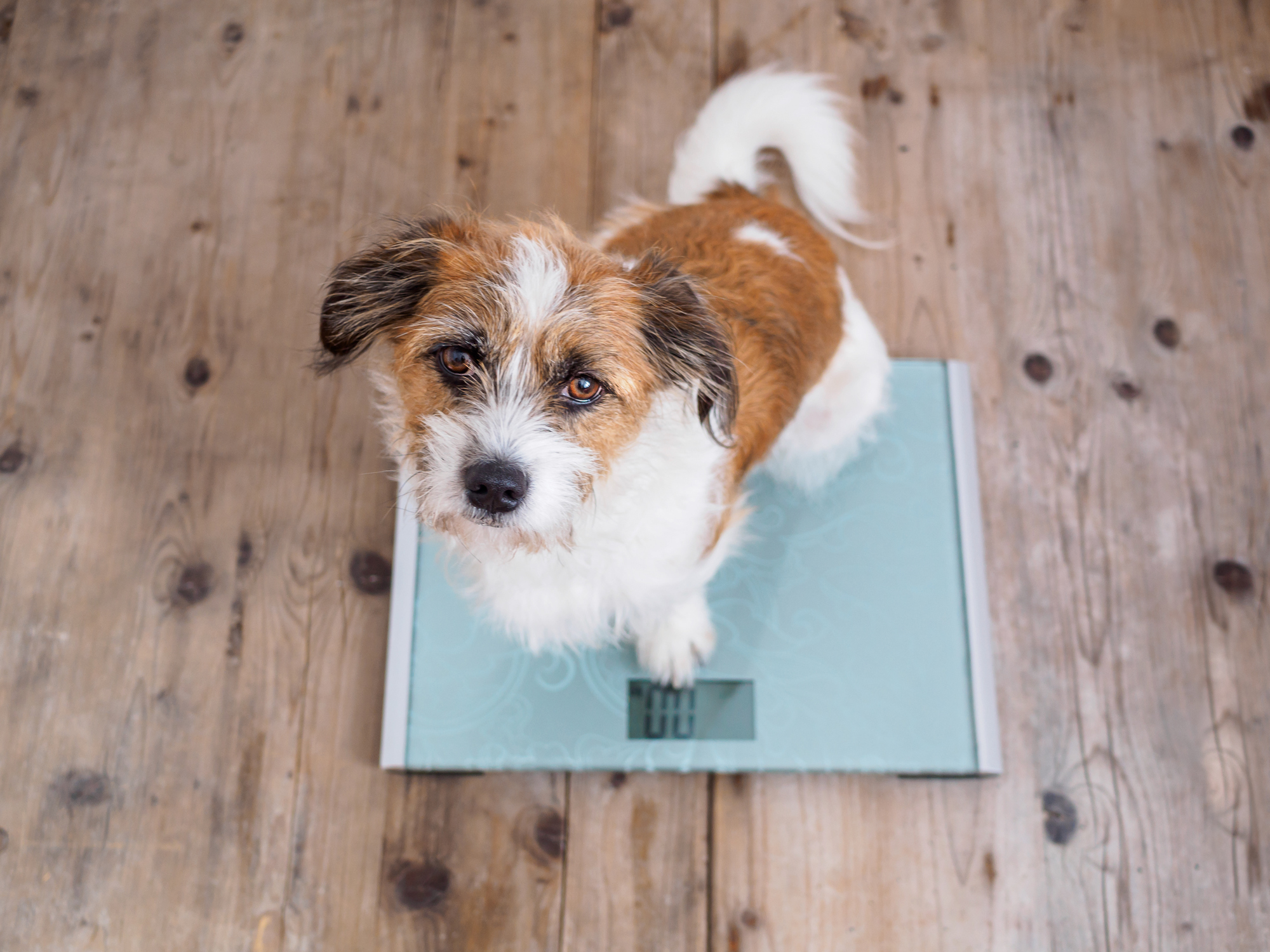
How much does your pet weigh? While most vet visits start with putting your pet on the scale, your pet’s last check-up may have been a few ounces (or pounds!) ago.
Weighing your pet at home is essential to tracking their weight-loss progress, recording their growth, or just making sure they’re maintaining a healthy body condition. Learn how to accurately weigh your pet at home using equipment you already have.
What Scale Do You Need To Weigh Your Pet?
For small dogs and cats up to 12 pounds, you can use a kitchen scale or a postal scale. For medium to large dogs, you can use a bathroom scale that you may use to weigh yourself.
How To Weigh Your Pet With A Bathroom Scale
If your dog weighs at least 25 pounds, you can weigh them with a bathroom scale by simply having them sit or stand on it. Just like with regular use, you’ll need to step on and then allow the scale to calibrate before having your pet step onto the scale. You can use a treat to encourage your dog to stay still.
You'll need to hold your dog if they’re too heavy for a kitchen scale or a postal scale yet too light for a bathroom scale to register. Record the number on the scale while holding your pet, then subtract your weight to determine your pet’s weight.
How To Weigh Your Pet With A Kitchen or Postal Scale
You can weigh your pet on a small household scale just as you would a package or a food ingredient.
If the weighing platform is too small for your pet to sit or stand on, you may need to place your pet in a container, like a cardboard box. You’ll need to set the tare weight by placing the empty box on the scale first, then pressing the “tare” button. Then, just load your pet in the box to get their weight.
How Often Should I Weigh My Pet?
For tracking your pet’s weight loss or maintenance, aim to weigh your pet at least once a week. During weight loss, your pet can lose around 1-2 percent of their starting weight each week. If your pet’s weight is not improving, switch to reduced-calorie pet food to provide satiety and complete nutrition on a caloric deficit.
Growing puppies and kittens should be weighed daily during their first few weeks of life. For young animals eight weeks and older, biweekly to monthly weight checks are sufficient.
How Much Should My Pet Weigh?
Your pet should generally weigh within the average weight for animals of their age, sex, and breed. For purebred pets, weight guidelines are easy to find within their breed standard from the American Kennel Club (AKC or Cat Fancier’s Association (CFA).
Once your pet is an adult, their weight should be relatively stable. Unexplained weight loss or gain can be due to feeding the wrong amounts of food or may point to an endocrine disorder like diabetes.
Not sure if your pet is at a healthy weight or if your puppy or kitten is growing at a healthy rate? Consult your veterinarian for advice, or make a same-day online vet appointment with VetLive today.














































